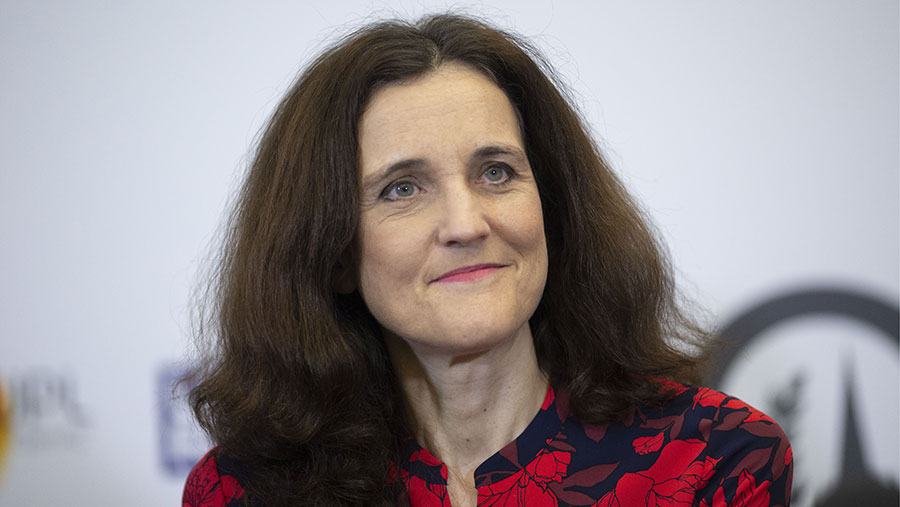FW Opinion: Villiers – long on rhetoric, short on detail
 Theresa Villiers © DAVID HARTLEY/Shutterstock
Theresa Villiers © DAVID HARTLEY/Shutterstock Theresa Villiers may lack the charisma of her predecessor, Michael Gove – that much was made clear from the Defra secretary’s lacklustre delivery at this week’s Oxford Farming Conference – but the content of her speech struck a familiar tone.
In it she emphasised the need for “radical changes” to agricultural policy, to protect the environment for future generations while boosting productivity for farmers.
See also: Villiers sets out plans at Oxford Farming Conference
About the author
 Phil Clarke
Phil Clarke
Executive editor, Farmers Weekly
Contact:
E: philip.clarke@reedbusiness.com
T: @FWphilclarke
Read more articles by Philip Clarke
The introduction of a new Agriculture Bill in the next fortnight will move the UK away from the “bureaucratic” Common Agricultural Policy, she said, towards a new approach based on “public money for public goods”. Sound familiar?
The emphasis will be on enhancing biodiversity, tackling climate change and raising standards of animal welfare.
But Ms Villiers also indicated that farmers and landowners will be given “opportunities” to boost their productivity, “leading to more successful and resilient farm businesses”.
It was at least encouraging that the Defra secretary said she was keen to hear from farmers as the government designs its new Environmental Land Management (ELM) scheme. Despite its massive parliamentary majority, it does seem Defra is still listening.
Most alarming, however, was Ms Villiers failure to reassure on the crucial matter of food imports, once the UK starts negotiating free-trade agreements with other global players
It was also some consolation (but not exactly news) that the government is guaranteeing to maintain CAP spending until the end of the current parliament in 2024.
The question remains, however, how much of that resource will be allocated to protecting the environment and how much to helping farmers?
The fear is that the government, eager to please the wider electorate, will prioritise the former rather than the latter.
Ms Villiers also confirmed that direct payments will be phased out over the next seven years, with the money redirected to the ELM scheme. (We knew that.)
What was missing was any information on the rate at which those direct payments will go and how farmers might remain viable when 60% of their income is derived from those payments.
Most alarming, however, was Ms Villiers failure to reassure on the crucial matter of food imports, once the UK starts negotiating free-trade agreements with other global players.
Yes, she made the right noises – insisting that farming’s voice will be heard “loud and clear at the negotiating table” and that she would “not dilute our high standards”.
She even went so far as to say the UK would walk away from trade talks “if that is in the national interest”.
But that still leaves open to interpretation what “in the national interest” might actually mean when if comes to signing a trade deal with the likes of the US or Australia.
For there is no doubt that President Trump will be batting for his farmers’ interests – but will the British government?
Ms Villers also failed to give any commitment to introduce a food standards commission, as demanded by the NFU, to scrutinise any future trade deal.
All she would say was that such a body was “potentially effective”, but there were other ways of exerting scrutiny and she would discuss it with government colleagues.
So, as expected, the new Defra secretary’s speech was long on rhetoric, short on detail – and totally void of the funny anecdotes and literary references so favoured by her predecessor.
Without this detail, much is now left to trust. It was very telling at Oxford that, when the audience of more than 400 was asked to show how many had any confidence that the government would deliver on its promises, not one person put their hand up.
